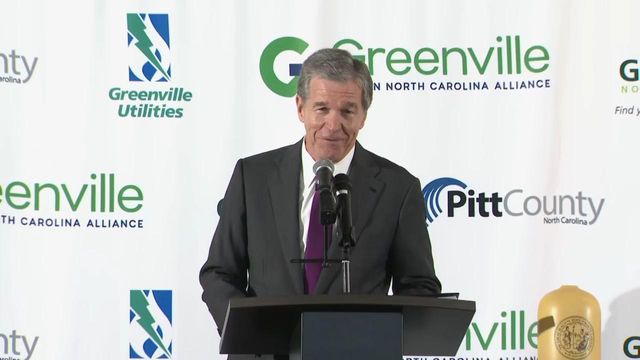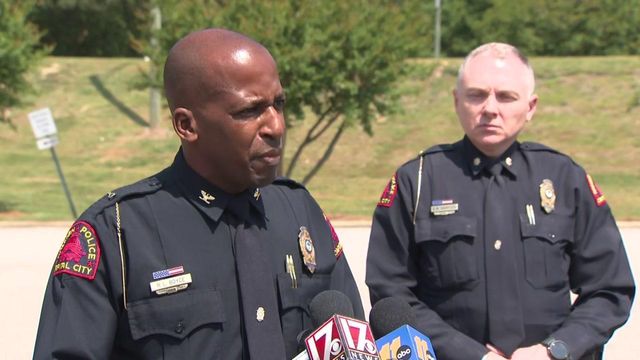NC school voucher proposal part of nationwide Republican push

If Republican state lawmakers get enough support this legislative session, North Carolina could become the latest state to use public money to help families of any income level send their children to private schools.
The proposal — which would make private school vouchers one of the state’s biggest education budget items — has stoked debate along party lines.
It’s part of a broader trend: Public funding for private education expenses is growing in Republican-led states, particularly for what are known as education savings accounts. Those are accounts, with funding typically based on the state’s per-student expenditure, for families that can be used toward any education expenses, including private-school tuition.
Two states have programs that are similar to North Carolina’s effort: Florida passed its voucher expansion in March. West Virginia’s plan was upheld last year by the state’s high court after a challenge.
Other states, including Iowa, Utah, Arizona and Arkansas, have passed or attempted to pass laws providing universal access to education savings accounts in recent months.
Others are expected to join the movement.
The North Carolina proposal, introduced in House Bill 823 and Senate Bill 406 and the Senate’s recent budget proposal, would cover private school tuition for families of all incomes, in the form of a check written to the private school that accepts their child. It would total more than $7,000 annually in some cases.
Supporters say the plan enables more educational options, which they say helps students who aren’t succeeding in their public school. Opponents say it would reduce enrollment in public schools, leading to a devastating drop in funding and, as a result, a lower-quality education.
During a school visit in Raleigh on Tuesday, Cooper said rural school systems – which can be their counties’ biggest employer – would eventually be hit the hardest.
“It’s time to invest in public education,” Cooper said. Specifically, he’s calling for more funding for teacher raises, early childhood education and childcare.
n a statement later in the day, Coopers office said in a news release: “Paying for an expanded voucher program will have a dramatic impact on funding for public education. Expanding voucher eligibility to any K-12 student will force public schools, especially those in rural and poorer counties, to make steep cuts, leaving schools without the resources to hire enough teachers and support students.”
Most states don’t have a private school voucher program. Most of the ones that do provide them for lower-income children, children attending a “failing” public school and children with disabilities. Many states without voucher programs offer tax credits to organizations that donate to help lower-income families send their children to private schools.
Dispute over priorities
North Carolina has a voucher program and a savings account program for children with disabilities to use at private schools, as well as its Opportunity Scholarship program, which funds vouchers for students from lower-income families.
“North Carolina is different because it is a voucher program,” said Bob Luebke, director of the Center for Effective Education at the John Locke Foundation. “Most of the other expansions in other states that we're talking about have been primarily through … education savings accounts.”
Most private school vouchers, as they operate in North Carolina, are called Opportunity Scholarships. They are checks written by the state, on behalf of qualifying families who apply for the voucher, to a private school. The child must apply to the private school and be accepted to qualify.
The effort has raised concerns among opponents who say state dollars should only be spent on public education.
In North Carolina, most private schools are religious, with most being Christian. They are some of the biggest recipients of vouchers.
And the push comes as a years-long battle has been waged over public school funding through a lawsuit filed by families and school boards in five lower-income counties. In Hoke County Board of Education, et. al., v. State of North Carolina, et. al., commonly known as “Leandro,” parties have agreed to a comprehensive plan to address shortcomings in the state’s education system. It includes more funding for educator raises, children with disabilities, disadvantaged children, pre-kindergaren and early childhood education, among numerous other funding efforts and policy changes. Republicans don’t support the plan, largely noting its cost of at least $4.5 billion more education dollars annually by 2028. Instead, they’ve said they support vouchers for getting at least some children out of bad schools.
During a State House of Representatives vote last week, in which the House passed the voucher bill, sponsor Rep. Tricia Cotham, R-Mecklenburg, said some kids need more choices than their assigned public school.
“Maybe a kid says they hate school” Cotham said. “It’s just not the place, maybe the school is too large, maybe it’s the type of curriculum, maybe they have dyslexia and need another location for them. So this would give families, parents, the opportunity because they know their child the best to say where their child should go to school.”
Private school funding in other states
Just 16 states and Washington, D.C., had a private school voucher program in March 2021, according to the Education Commission of the States. Among them, they had 27 total voucher programs, mostly targeted to certain types of students.
North Carolina Republicans’ proposal would expand North Carolina’s Opportunity Scholarship program to include families of all incomes, while also increasing the amount of funding set aside for the vouchers from $133.3 million this year (funding more than 25,000 students) to well more than $400 million in two years and eventually well above $500 million.
“It would be it would be a significant expansion,” Luebke said.
At least 50% of funds would go to children whose families qualify for free or reduced-price school meals. The lowest-income families would receive more than $7,000 in a year, while the wealthiest would receive more than $3,000 in a year, starting in the 2024-25 school year. For the first time, students already attending a private school would also be eligible for the vouchers.
A more-than-doubling of North Carolina’s private school voucher program would reduce public school funding by more than $200 million, according to an analysis from the state’s Office of State Budget and Management. The analysis doesn’t include the potential federal local and funding impact associated with the voucher program’s expansion.
Meanwhile, the state would end up spending $277.5 million more overall on private schools through the expansion.
Luebke is skeptical the numbers will be that high in just a few years, without dozens more private schools opening across the state to accept the new students, which could top more than 26,000.
Thousands more of the new voucher recipients likely would be current private school students.
Impact of vouchers
Research is mixed on the impact of private school vouchers on student achievement, with some studies showing performance declines in some states among students who transferred to private schools while studies in other areas showed higher graduation rates among voucher recipients. No testing data exist to compare outcomes in North Carolina, and some research done here did not involve randomly selected students.
Supporters of voucher expansion argue the schools are accountable to families, who could withdraw their students whenever they wanted to if they didn’t like the school.
But it’s unclear how well voucher recipients in North Carolina are doing.
“Private schools have no accountability in terms of the curriculum, they have no accountability in terms of whether they discriminate or not, against certain students,” said Jane Wettach, a retired Duke University law professor who has studied Opportunity Scholarships. She noted that private schools can selectively enroll, which public schools cannot do. “They have no accountability in terms of whether or not they meet those special needs of certain students, they can not admit students with special needs. If they admit students with special needs, they have no obligation to meet those special needs, which of course, the public schools have to.”












